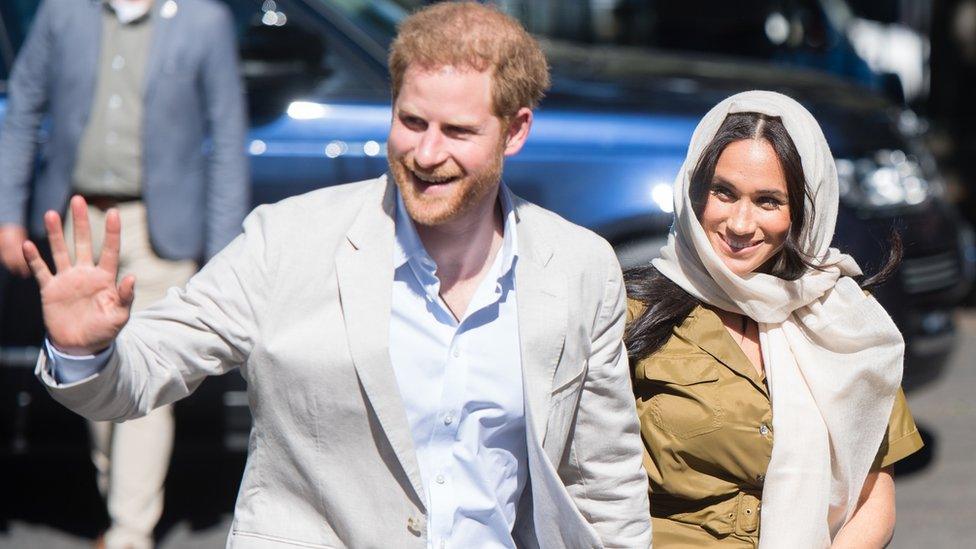Meghan speaks about tackling gender-based violence in South Africa
- Published
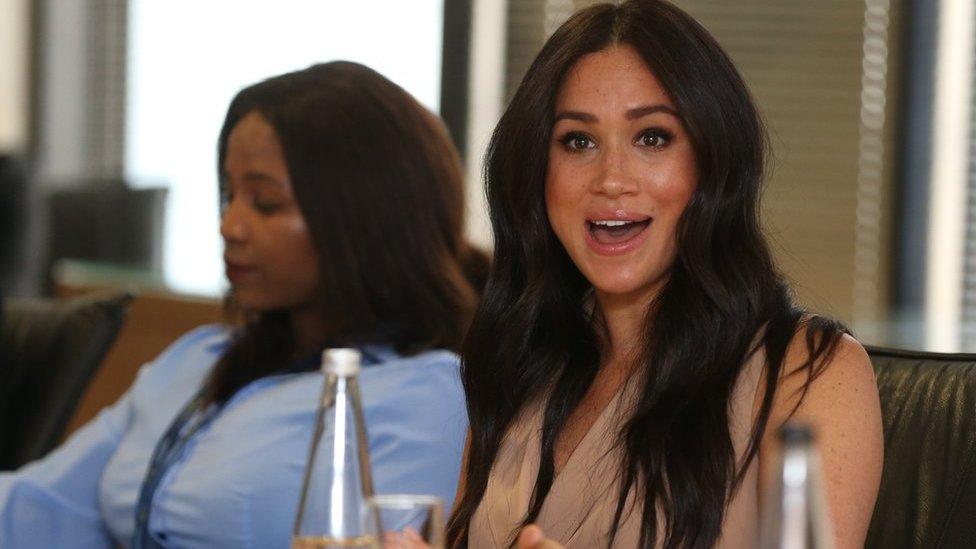
The Duchess of Sussex has spoken about the importance of supporting victims of gender-based violence.
Meghan was speaking to girls and campaigners in Johannesburg on the penultimate day of her and Prince Harry's South Africa tour.
The duchess said the country was in a "crisis state" when it comes to gender-based violence, after a spate of attacks against women in the country.
She also emphasised the importance of mental health support in aftercare.
The Sussexes are on a 10-day tour in which Prince Harry has visited a minefield and Meghan and their baby son Archie met Archbishop Desmond Tutu.
At a visit to ActionAid on Tuesday, Meghan said the age range of those experiencing violence was "really staggering" and agreed that men and boys should be held accountable for their actions.
During her visit she also heard from charity workers how many girls feel unsafe at school.
"The trouble is as a young girl if you are not feeling safe at school and not feeling safe at home, where does that leave you? And that really is systemic. That is a huge issue," Meghan said. "You will feel very displaced."
The duchess, who was taking part in a discussion, also said it was important victims feel supported when they report such violence.
"And when they tell somebody, someone does something. That's the other issue right? It's so key being able to feel that they can communicate what's happening when something goes wrong, whatever it is," she said.
Earlier, Meghan spoke to students and academics during another discussion on gender issues at the University of Johannesburg.
She said support was needed for women in higher education in South Africa. "When a women is empowered it changes absolutely everything in the community," she told the group.
The duchess announced three new "gender grants" for the University of Johannesburg, Stellenbosch University and the University of Western Cape at the beginning of Tuesday's discussion with the Association of Commonwealth Universities (ACU).
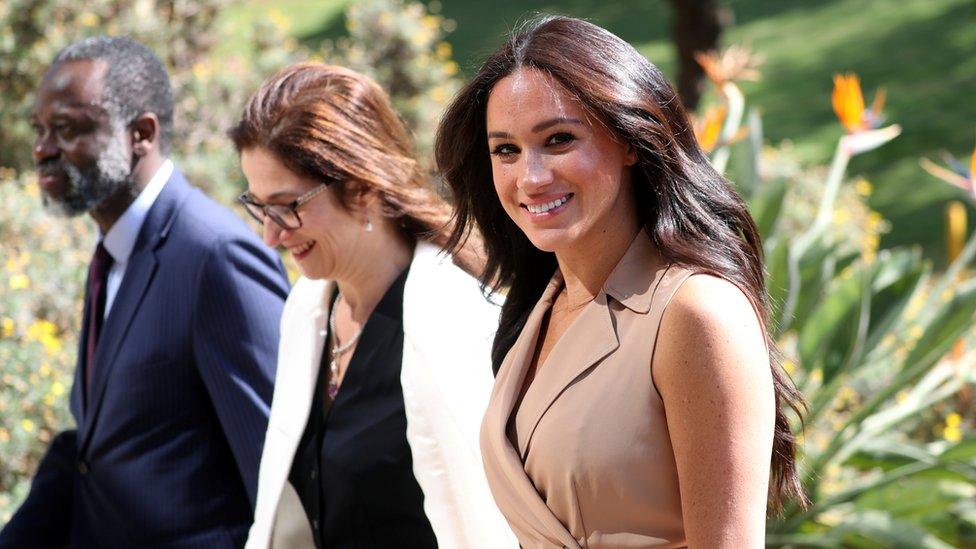
It is the penultimate day of the Sussexes' overseas tour
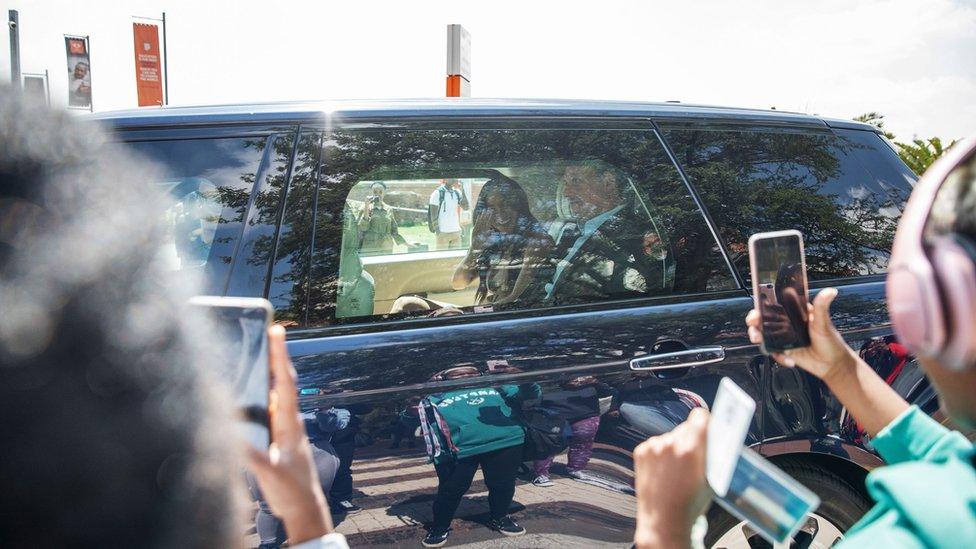
Well-wishers cheered Meghan on at the University of Johannesburg
"The goal here is to be able to have gender equality, to be able to support women as they are working in research and higher education roles," she told the discussion group.
"True to what you said, when a women is empowered it changes absolutely everything in the community and starting an educational atmosphere is really a key point of that," she added.
Meghan said she was only able to go to university herself because of financial help from a scholarship and "families chipping in".
"If you don't have the support that is necessary that you feel that you can keep taking the next step then you're stunted in growth," she said.
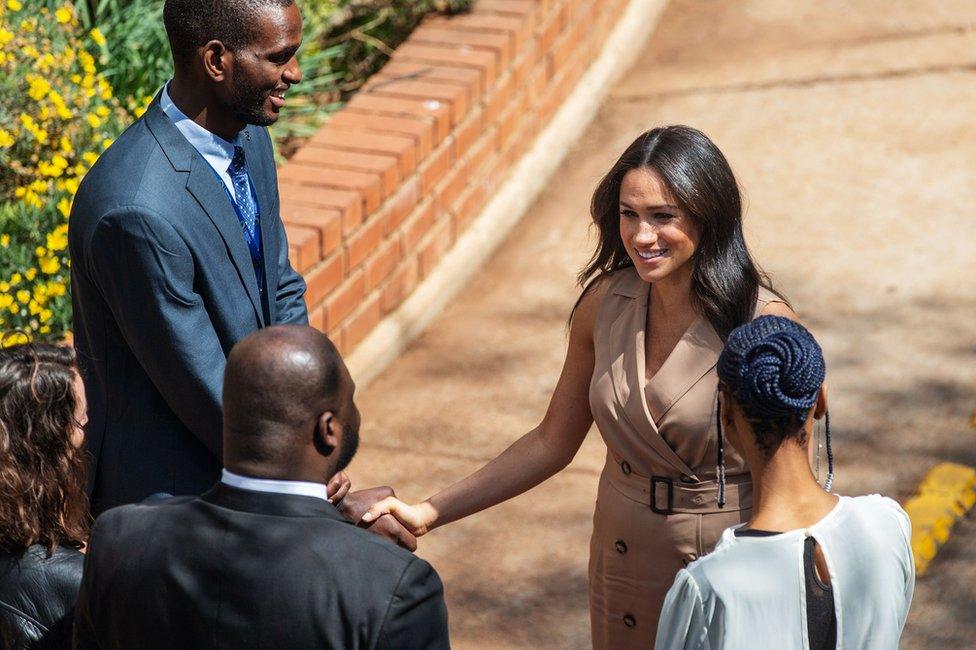
Meghan attended a roundtable discussion about the challenges faced by young women in accessing higher education
Well-wishers cheered as the duchess was greeted by the ACU's secretary general, Dr Joanna Newman, and Prof Tshilidzi Marwala, vice chancellor of the university.
Meanwhile, the Duke of Sussex told a group of young people to "hold on to your dreams" as he visited a health centre in a remote village in Malawi.
Sitting outside the Mauwa Health Centre, they discussed sexual health but also touched on climate change and conservation.
A health official said: "They asked him what challenges he faced when growing up and he did have challenges but he said they were not similar as the context was different.
The official added that the prince also urged the youngsters to "show kindness, empathy and work together."
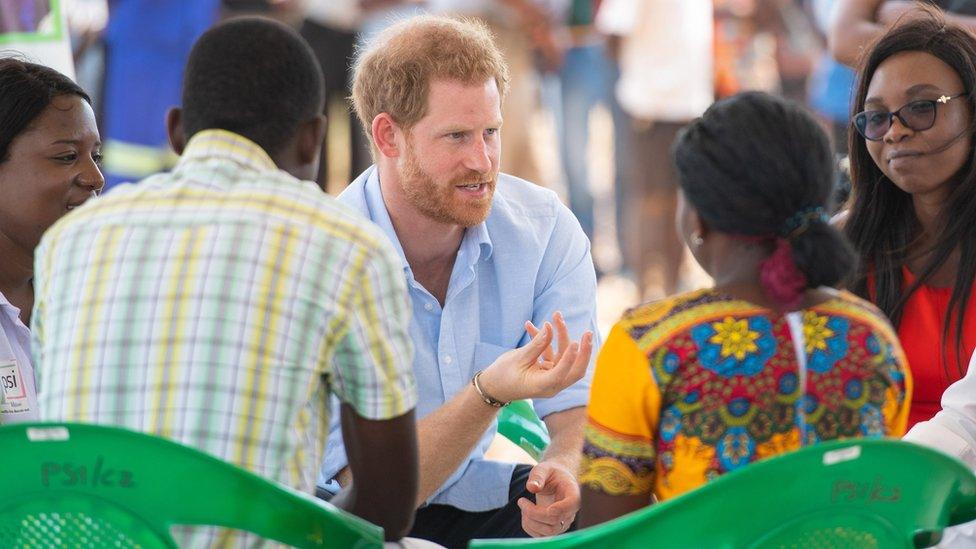
Prince Harry was speaking in a village in rural Malawi
The prince had travelled to the village near Blantyre to see the pharmacy-in-a-box project, funded by the UK and US governments.
The pharmacies are prefabricated, solar-powered and air-conditioned storage facilities for medicines, which keep drugs secure, held at the right temperature, and stocked up.
At the health centre, patients can access a range of services from malaria treatment to a maternity unit, as well as HIV testing and aftercare for those who have the virus.
Speaking about the drugs used to treat an HIV patient, Prince Harry said: "You need to know your status and know there's medication, so you can have a happy and healthy life."
- Published28 September 2019
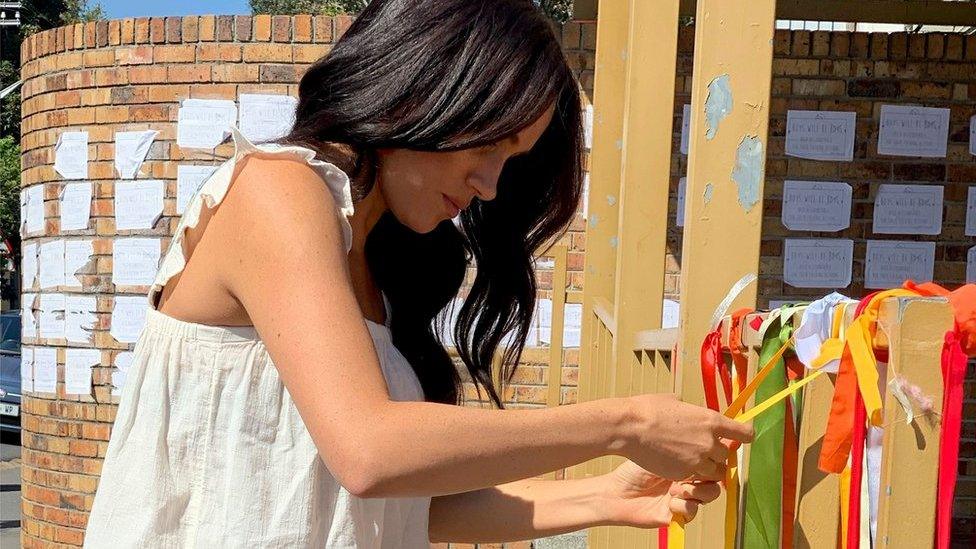
- Published29 September 2019
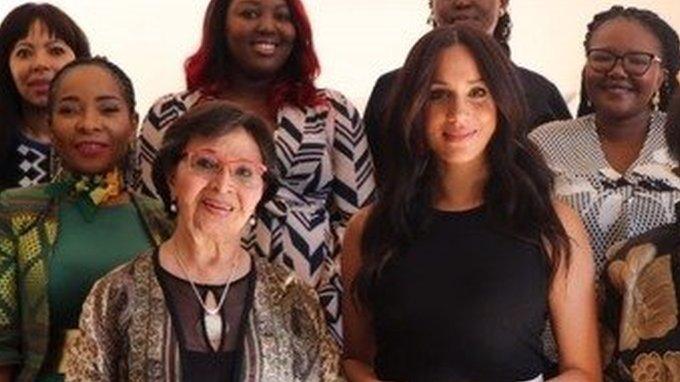
- Published23 September 2019
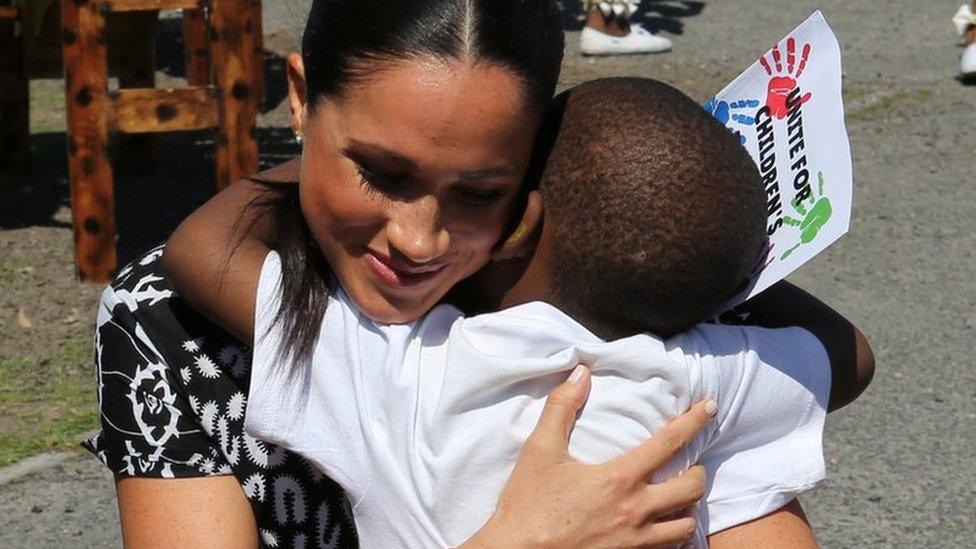
- Published25 September 2019
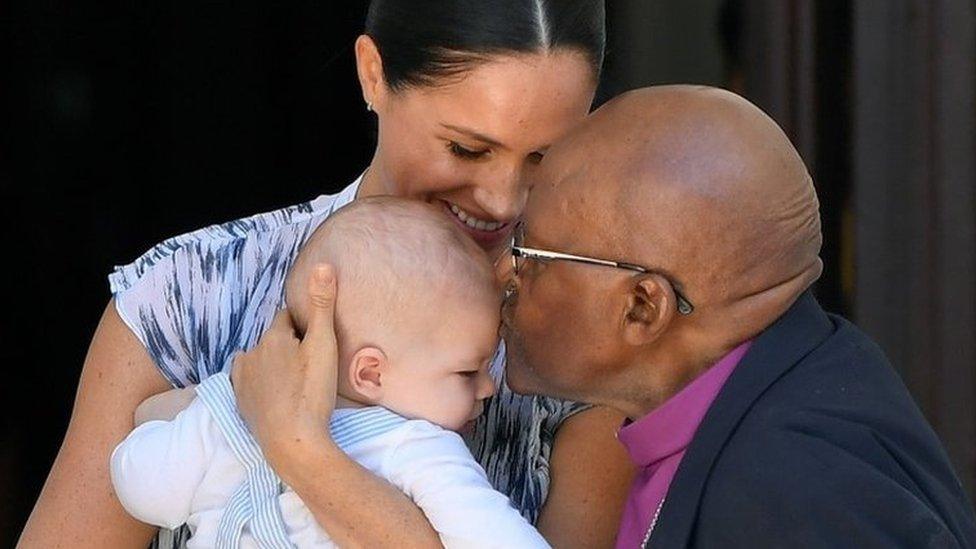
- Published28 September 2019
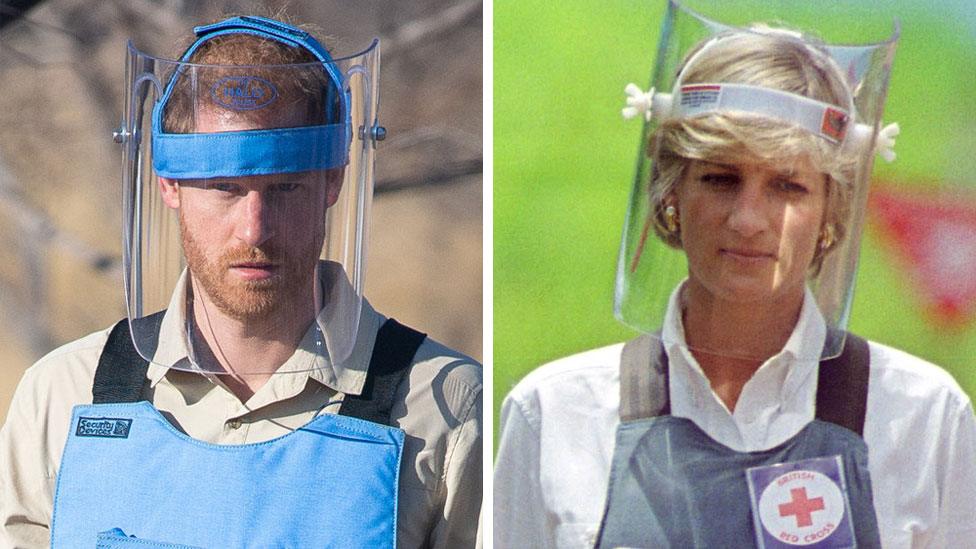
- Published24 September 2019
